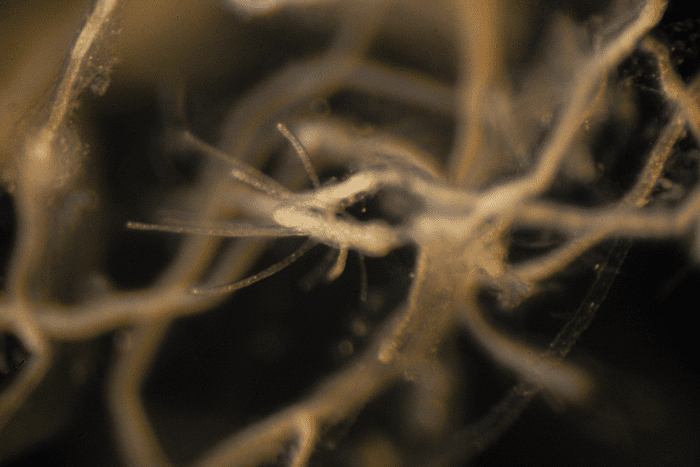Immortality exists – but to get it, you need to be a jellyfish, not a god or a vampire. Moreover, only one species of cnidarian, Turritopsis dohrnii, is known to have found the secret of eternal life. Geneticists hope comparing T. dornii’s DNA with its close relative, T. rubra, will help us understand the aging process and how to evade it.
Turritopsis are warm water jellyfish half a centimeter (0.2 inches) long. At least three species of hydra have the capacity to age backwards like Benjamin Button, going from adult to juvenile stage, before eventually growing up again. However, two of these can only go from the hydra equivalent of adolescent to child; like the victim in some uncensored fairytale, sexual reproduction locks them into adulthood. T. dohrnii, on the other hand, appears able to go from its free-floating adult stage to bottom-living polyp, known as life cycle reversal (LCR), as many times as it wants.
A paper in the journal Proceedings of the National Academy of Sciences provides a comparison of T. dorhnii and T. rubra in the hope the differences will prove enlightening, throwing in a few more distantly related types of cnidarians as well.
Dr Maria Pascual-Torner of Universidad de Oviedo, Spain, and co-authors didn’t find any single genetic trick that appears to provide the fountain of youth. Instead, they discovered a wide variety of potential contributors, reporting; “We have identified variants and expansions of genes associated with replication, DNA repair, telomere maintenance, redox environment, stem cell population, and intercellular communication.”

This polyp of Turritopsis dohrnii is from a colony generated by a single rejuvenated medusa. Image Credit: Maria Pascual-Torner
All of these could eventually prove important, but the study homed in on two significant aspects of T. dohrnii’s genome absent in its relative. One of these silences the polycomb repressive complexes: 2 families of proteins that regulate gene expression. The other activates pluripotency – the capacity of a stem cell to turn into whatever sort of cell it needs to become – during life cycle reversal.
Applying these to humans will certainly be a Herculean task if it’s possible at all. However, while many of T. dorhnii’s features probably only work in combination, some might provide a few precious extra years of health in more complex creatures, ourselves included.
As the paper notes: “Natural selection declines with age.” Only in rare cases, such as the orca grandmothers, is there much evolutionary benefit to living long and healthy lives after reproduction ceases. Consequently, nature has done little work to ensure it occurs – we’ll have to work out how to make it happen ourselves, with only T. dorhnii to guide us.
Even T. dohrnii does not live forever. Indeed the typical specimen has a much shorter life expectancy than you, this being the sad consequence of a small lifeform with few defenses and tasty to larger jellyfish and fish. Presumably, this is why they have not come to dominate the Earth as we might expect an immortal species to do. Nevertheless, its capacity for rejuvenation makes it theoretically capable of eternal life, something suspected in only one other species and confirmed in none.
Source Link: The Genetics That Make One Animal Immortal Have Been Revealed